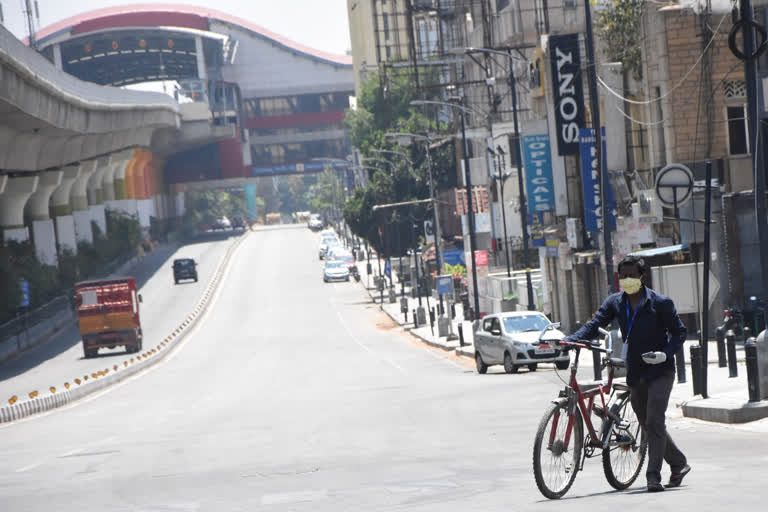Hyderabad: The Supreme Court will later this month hear a petition which has sought imposition of financial emergency in the country on the ground that economic activities have "come to a standstill" due to the lockdown over coronavirus pandemic.
The plea filed by Centre for Accountability and Systemic Change (CASC), stated, "Divergence of steps taken by different authorities are causing confusion and lawlessness (which) in no way can be solution to a problem as grave as Covid-19. Due to the lockdown, the economic activities have come to a standstill. Hence, it is most humbly submitted that financial emergency needs to be imposed in the country under Article 360 of the Constitution of India."
The plea has also sought a direction to the Centre to suspend collection of utility bills like that of electricity, water, gas, telephone, internet and EMI payments during the period of lockdown.
However, earlier in March, Finance Minister Nirmala Sitharaman cleared that "no move to impose financial emergency as was claimed by some reports."
But what exactly does the imposition of financial emergency in the country mean?
A financial emergency is one of the three types of emergency declarations provided in the Indian Constitution. The provisions of Financial Emergency is enshrined under Article 360 of the Constitution, which enables the President to enforce a financial emergency if a "situation has arisen whereby the financial stability or credit of India or of any part of the territory thereof is threatened".
Read: Not just economy, COVID-19 might also leave a lasting imact on democracy
Once the declaration of Financial Emergency is approved by both houses of Parliament, it remains in operation till revoked by President.
Once imposed, "the executive authority of the Union shall extend to the giving of directions to any State to observe such canons of financial propriety as may be specified in the directions, and to the giving of such other directions as the President may deem necessary and adequate for the purpose."
Such directions may also include:
- A provision requiring the reduction of salaries and allowances of all or any class of persons serving in connection with the affairs of a State.
- A provision requiring all Money Bills or other Bills to which the provisions of article 207 apply to be reserved for the consideration of the President after they are passed by the Legislature of the State.
Read: Social media and COVID-19: opportunity or disaster?
Under Article 360, the President can also issue directions for the reduction of salaries and allowances of "all or any class of persons serving in connection with the affairs of the Union including the Judges of the Supreme Court and the High Courts."
However, it is pertinent to note that Article 360 has never been used till now in any part of the country, and hence there are no previous instances to analyse its impact.
(With inputs from PTI)



